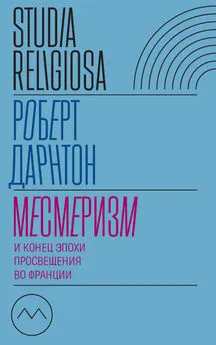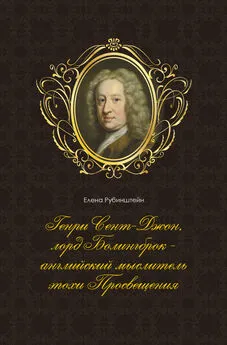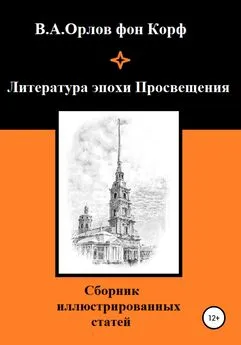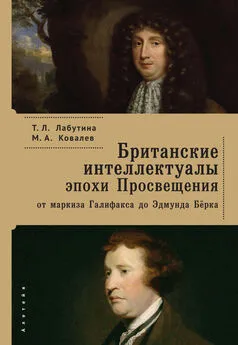Ларри Вульф - Изобретая Восточную Европу: Карта цивилизации в сознании эпохи Просвещения
- Название:Изобретая Восточную Европу: Карта цивилизации в сознании эпохи Просвещения
- Автор:
- Жанр:
- Издательство:Новое литературное обозрение
- Год:2003
- Город:Москва
- ISBN:5-86793-197-8
- Рейтинг:
- Избранное:Добавить в избранное
-
Отзывы:
-
Ваша оценка:
Ларри Вульф - Изобретая Восточную Европу: Карта цивилизации в сознании эпохи Просвещения краткое содержание
В своей книге, ставшей обязательным чтением как для славистов, так и для всех, стремящихся глубже понять «Запад» как культурный феномен, известный американский историк и культуролог Ларри Вульф показывает, что нет ничего «естественного» в привычном нам разделении континента на Западную и Восточную Европу. Вплоть до начала XVIII столетия европейцы подразделяли свой континент на средиземноморский Север и балтийский Юг, и лишь с наступлением века Просвещения под пером философов родилась концепция «Восточной Европы». Широко используя классическую работу Эдварда Саида об Ориентализме, Вульф показывает, как многочисленные путешественники — дипломаты, писатели и искатели приключений — заложили основу того снисходительно-любопытствующего отношения, с которым «цивилизованный» Запад взирал (или взирает до сих пор?) на «отсталую» Восточную Европу.
Изобретая Восточную Европу: Карта цивилизации в сознании эпохи Просвещения - читать онлайн бесплатно полную версию (весь текст целиком)
Интервал:
Закладка:
Тёллиус Якоб (Tollius Jacob) 241
Толстой Л. Н. 10, 63, 538, 539, 541
Тома Антуан (Thomas Antoine) 304, 329, 332
Тотт Франсуа де, барон (Tott Francois de) 123, 124, 125, 127, 128, 129, 130, 131, 132, 147, 151, 168, 169, 183, 406, 421, 519, 524
Траян, император 70, 435, 437
Трумэн Гарри 32, 220
Тюрго Анн-Робер 399
Фабр Жан (Fabre Jean) 25, 222, 229, 290, 292, 379, 417
Фальконе Этьен-Морис (Falconet Etienne-Maurice) 168, 312, 330, 331, 379, 394,
Фихте Иоганн Готлиб 484, 485, 486, 487, 488, 493, 494, 496, 497, 499
Фонтенель Бернар де (Fontenelle Bernard de) 304, 306, 361
Форстер Георг (Forster Georg) 489, 490, 491, 492, 494, 495, 497, 502, 533
Фортис Альберто, аббат (Fortis Alberto) 461, 462, 463, 464, 465, 467, 468, 469, 470, 471, 473, 474, 475, 476, 477, 478, 482, 483
Фридрих II, король Пруссии 54, 55, 56, 57, 58, 149, 258, 259, 260, 280, 283, 391, 392, 394, 399, 491, 486, 491, 497, 513
Фуко Мишель (Foucault Michel) 58, 152, 155
Хоффманнсег Иоахим, фон (Hoffmannsegg Joachim von) 89, 90, 131
Чабб Томас Колдекотт (Chabb Thomas Coldecott) 535, 540
Чабод Федерико (Chabod Federico) 22, 39, 52
Черчилль Уинстон (Churchill Winston) 9, 31, 34, 51, 220, 416, 457, 535, 537
Шуазель Этьенне-Франсуа де (Choisel Etienne-François de) 257, 353, 401, 403, 404
Шувалов Иван 299, 309, 310, 311, 312
Иллюстрации
















Примечания
1
Downs R. M., Stea D. Maps in Minds. Reflections on Cognitive Mapping. New York, 1977. P. 23, 41. Отличный обзор исследований «ментальных карт» см. в работе: Шенк Б. Ментальные карты. Конструирование географического пространства в Европе со времени эпохи Просвещения // Миллер А. (ред.) Регионализация посткоммунистической Европы. Серия «Политические исследования». М.: ИННОЙ, 2001. № 4.
2
Said Eward W. Orientalism. New York, 1979.
3
Более подробный анализ немецких источников смотри в работах: Lemberg Hans. Zur Entstehung des Osteuropabegriffs im 19. Jahrhundert. Vom «Norden» zum «Osten» Europas, in: Jahrbücher für Geschichte Osteuropas, NF, 33.1985. S. 48–91; Groh Dieter , Rußland im Blick Europas. 300 Jahre historische Perspektiven. Frankfurt. 1988; Kopelev Lev (Hg.), West-östliche Spiegelungen. Reihe A. Russen und Rußland aus deutscher Sicht. Band 2, 18. Jahrhundert: Aufklärung, München, 1987.
4
Todorova M. Imagining the Balkans. New York, 1997; Neumann her B. The Uses of the Other. «The East» in European Identity Formation. Minneapolis: Univ. of Minnesota Press, 1999.
5
Подробнее о дискурсе Центральной Европы и месте в нем России см.: Миллер А. И. Тема Центральной Европы: история, современные дискурсы и место в них России // Новое литературное обозрение. 2001. № 52 (6). С. 75–96.
6
Brodsky Joseph. Why Milan Kundera Is Wrong About Dostoevsky? // Cross Currents. 1986. № 5. C. 477–483. Цитата со с. 481.
7
Neumann her В. The Uses of the Other. P. 111.
8
Churchill Winston. The Iron Curtain // Blood, Toil, Tears and Sweat: The Speeches of Winston Churchill, ed. David Cannadine. Boston: Houghton Mifflin, 1989. P. 303–305.
9
Tacitus. Germania // The Agricola and the Germania, trans. H. Mattingly and S. A. Handford. London: Penguin, 1970. P. 114.
10
Coxe William. Travels into Poland // Travels into Poland, Russia, Sweden, and Denmark: Interspersed with Historical Relations and Political Inquiries. London, 1785; rpt. New York: Arno Press and New York Times, 1971, preface.
11
Ségur Louis-Philippe, comte de. Mémoires, souvenirs, et anecdotes, par le comte de Ségur, vol. I, in Bibliothèque des mémoires: relatif à l’histoire de France: pendant le 18e siècle, vol. XIX, ed. M. Fs. Barrière. Paris: Librairie de Firmin Didot Frères, 1859; Ledyard John. John Ledyard’s Journey Through Russia and Siberia 1787–1788: The Journal and Selected Letters, ed. Stephen D. Watrous. Madison: Univ. of Wisconsin Press, 1966.
12
Mansuy, Abel. Le Monde slave et les classiques français aux XVI–XVII siècles. Préface de Charles Diehl. Paris: Librairie Ancienne Honoré Champion, 1912. P. 8, 10.
13
Said Edward W. Orientalism. New York: Vintage Books, 1979. P. 1–3.
14
Bernal Martin. Black Athena: The Afroasiatic Roots of Classical Civilization, vol. I, The Fabrication of Ancient Greece 1785–1985. New Brunswick, N.J.: Rutgers Univ. Press, 1987; Chabod Federico. Storia dell’idia d’Europa. Bari: Editori Laterza, 1965. P. 82–121; Hay, Danys, Europe: The Emergence of an Idea. Edinburgh: Edinburgh Univ. Press, 1968. P. 117–127; Duroselle Jean-Baptiste. L’Idée d’Europe dans l’histoire. Paris: Denoël, 1965. P. 77–133; Tazbir Janusz. Poland and the Concept of Europe in the Sixteenth-Eighteenth Centuries, European Studies Review 7, no. I (Jan. 1977): 29–45.
15
Mozart, Wolfgang Amadeus. Briefe, ed. Horst Wandrey. Zürich: Diogenes, 1982. P. 371.
16
Wallerstein Immanuel. The Modern World-System: Capitalist Agriculture and the Origins of the European World-Economy in the Sixteenth Century. New York: Academic Press, 1974. P. 97.
17
Ibid. P. 301.
18
The Origins of Backwardness in the Eastern Europe: Economics and Politics from the Middle Ages Until the Early Twentieth Century. Ed. by Daniel Chirot. Berkeley: Univ. of California Press, 1989. P. 1–15.
19
Segel Harold B. Renaissance Culture in Poland: The Rise of Humanism 1470–1543. Ithaca, N.Y.: Cornell Univ. Press, 1989. P. 13; Mączak Antoni. Progress and Under-Development in the Eyes of Renaissance and Baroque Man, Studia Historiae Oeconomicae 9 (1974): 77–94.
20
Mansuy A. P. 32, 56–57.
21
Ibid. P. 14–15.
22
Margeret Jacques. The Russian Empire and Grand Duchy of Muscovy: A 17 th-Century French Account, trans. Chester S.L. Dunning. Pittsburgh, Pa.: Univ. of Pittsburgh Press, 1983. P. 8, 10, 23.
23
Smith John. Travels and Works of Captain John Smith: President of Virginia, and Admiral of New England, 1580–1631, ed. Edward Arber, Part II. Edinburgh: John Grant, 1910. P. 805, 857, 866–868.
24
Olearius Adam. The Travels of Olearius in Seventeenth-Century Russia, trans. Samuel H. Baron. Stanford, Calif.: Stanford Univ. Press, 1967. P. 126–147; see also Leitsch Walter. Westeuropäische Reiseberichte über den Moskauer Staat // Reiseberichte als Quellen europäischer Kulturgeschichte: Aufgaben und Möglichkeiten der historischen Reiseforschung, ed. Antoni Mączak and Hans Jürgen Teuteberg. Wolfenbüttel: Herzog August Bibliothek, 1982. P. 153–176.
25
Milton John. A Brief History of Moscovia: And of Other Less-Known Countries Lying Eastward of Russia as far as Cathay. London: Blackamore Press, 1929. P. 32.
26
Boswell James. The Life of Samuel Johnson, ed. Frank Brady. New York: New American Library, 1968. P. 236–237.
Читать дальшеИнтервал:
Закладка:
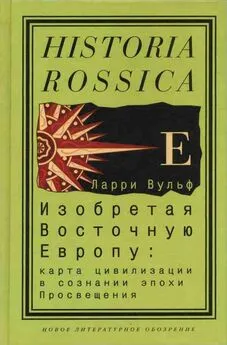


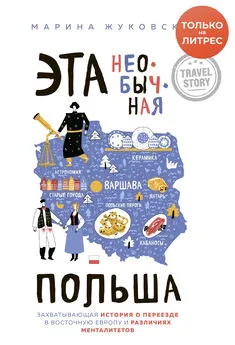
![Татьяна Лабутина - Британские интеллектуалы эпохи Просвещения [от маркиза Галифакса до Эдмунда Берка]](/books/1064514/tatyana-labutina-britanskie-intellektualy-epohi-pr.webp)
![Жорж Вигарелло - История тела Том 1 [От Ренессанса до эпохи Просвещения]](/books/1081515/zhorzh-vigarello-istoriya-tela-tom-1-ot-renessansa-d.webp)
![Филипп Арьес - История частной жизни Том 3 [От Ренессанса до эпохи Просвещения]](/books/1082541/filipp-ares-istoriya-chastnoj-zhizni-tom-3-ot-renes.webp)
